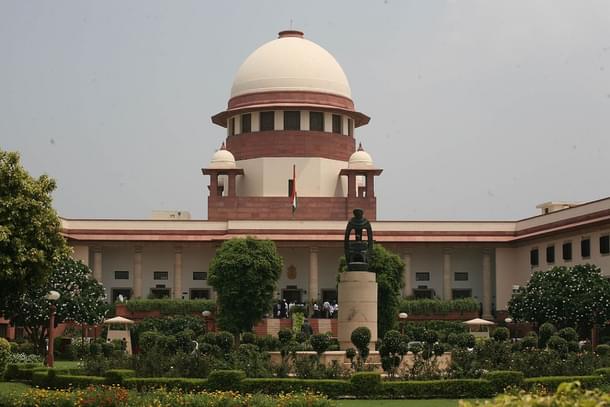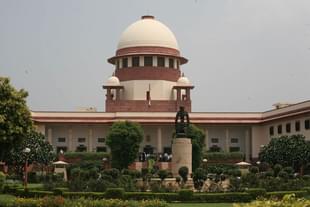News Brief
'Waqf Not Essential Part Of Islam:' Solicitor General Defends Act In Supreme Court, Hearing To Continue Tomorrow
Arjun Brij
May 21, 2025, 05:32 PM | Updated 05:32 PM IST
Save & read from anywhere!
Bookmark stories for easy access on any device or the Swarajya app.


The Supreme Court on Wednesday (21 May) heard extensive arguments by the Union Government opposing any interim stay on the Waqf Amendment Act 2025.
The bench led by Chief Justice of India (CJI) B R Gavai, comprising Justice A G Masih was in session for over three hours, with Solicitor General Tushar Mehta making submissions on behalf of the Centre.
At the heart of today's hearing was the proviso to Section 3C of the Act, which suspends the waqf status of property pending an inquiry by a designated officer on whether it encroaches upon government land, LiveLaw reported.
Regarding this, Mehta said that this proviso only means that an entry will be made in the revenue records and that the question of title will be only determined by the court. He asserted that there was no basis for the argument that the government could unilaterally take over the Waqf land.
Responding to fears that Section 3C allows the government to act as a judge in its own cause, Mehta cited Crawford Bayley vs Union of India, where similar provisions under the Public Premises Act were upheld.
There is no denial of access to justice under 3C, Mehta said, pointing out that affected parties could approach the Waqf tribunal under Section 83.
On the issue of 'Waqf-by-user', Mehta argued that it was a statutory right and not a fundamental one. “Waqf is not an essential part of Islam… Waqf is nothing but just charity in Islam,” he said.
"Many countries don't have waqf as a concept and there are trusts. Waqf per se is not an essential religious practice," SG stressed.
He quoted from Supreme Court judgments and Ambedkar’s Constituent Assembly speech to assert that essential religious practices are distinct from charitable acts.
Addressing concerns over the inclusion of non-Muslims in the Waqf Board and Central Waqf Council, Mehta explained that since the Waqf Board performs only secular functions and waqf properties can include schools and orphanages that serve all communities. So appointing up to two non-Muslim members does not alter its character.
Mehta also defended Section 3D, which bars waqf declaration over protected monuments, citing concerns by the Archaeological Survey of India (ASI).
The hearing is set to resume tomorrow.
Arjun Brij is an Editorial Associate at Swarajya. He tweets at @arjun_brij




